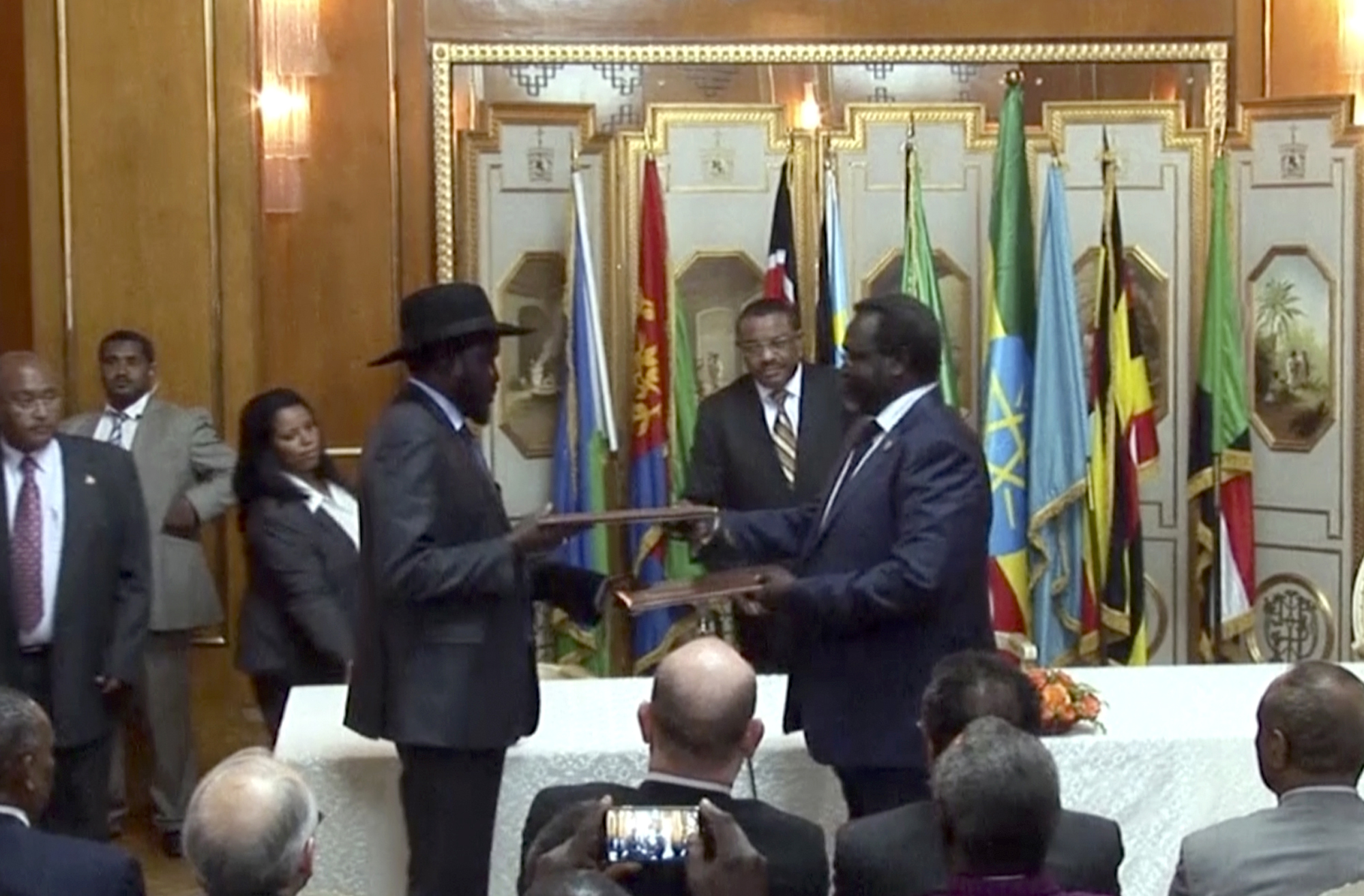
Editor's Note: This is an exerpt from a guest blog post written by Enough Project Sudan and South Sudan Policy Analyst Akshaya Kumar which originally appeared on ThinkProgress.
A month ago, the two protagonists in South Sudan’s civil war promised to make peace within 60 days. After six months of unabated violence, the country’s president, Salva Kiir and its erstwhile vice president, Riek Machar, recommitted themselves to the terms of a May 2014 ceasefire brokered by the Intergovernmental Authority on Development, (IGAD) the regional group that is leading the talks. Kiir and Machar also pledged that they would ensure that humanitarians would not be obstructed in their struggle to deliver life-saving aid to the 1.5 million people who have been displaced from their homes by violence and the 7 million at risk of starvation.
All these promises have been broken. Fighting continues in pockets around the country, and aid workers complain that they have been beaten, arrested and looted, making it almost impossible for them to reach South Sudan’s civilians on the brink of famine.
Perhaps most importantly, as a part of the early June deal, Kiir and Machar promised to figure out what a transitional government of national unity would look like within 60 days. Halfway to that deadline, neither man has delivered on his word. Instead, they’ve done almost everything but, issuing bizarre decrees, increasing weapons stockpiles, and generally avoiding the hard work of ending a war. Here’s just seven of the unbelievable things South Sudan’s leaders have done instead spending the past 30 days making peace with one another:
1. Order curfew violators shot dead since only “witches” go out at night.
South Sudan’s Interior Minister Aleu Ayieny Aleu confirmed that he had ordered security forces to shoot and kill anyone who violates the country’s night-time curfew. When questioned about the curfew by reporters, Aleu added: “It is only witches who move at night. They steal and kill our people … shoot them.”
2. Threaten to capture oil fields even if that means attacking the U.N.
Opposition leader and former vice president Machar told Reuters that if fighting resumed, his troops would try to stop production from South Sudan’s oil fields – even if United Nations peacekeepers were guarding these installations. Machar added: “We won’t harm oil installations but we will make sure it [output] stops, because it will be used by the government to buy arms.”
Read the full post on ThinkProgress.
Photo credit: (AP Photo/AP Video)

